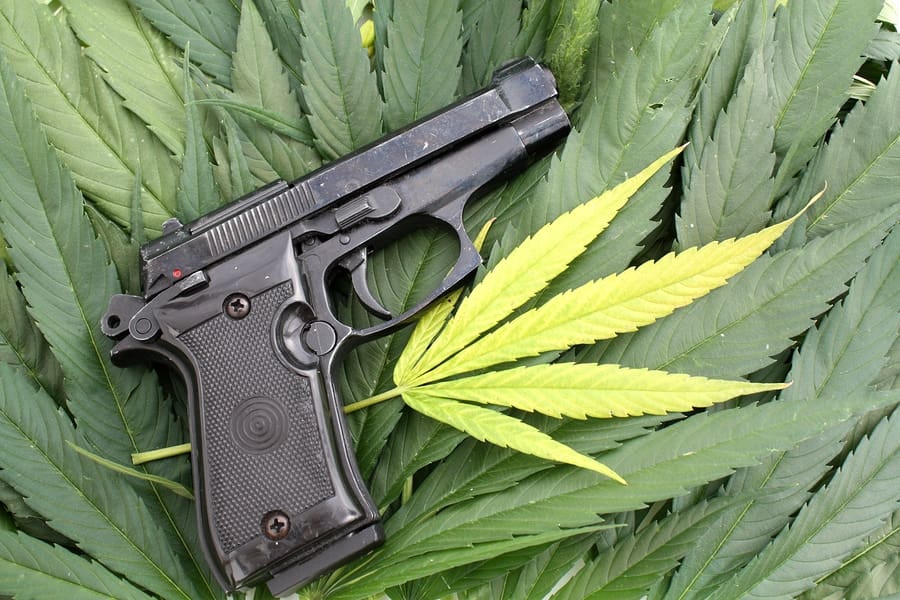U.S. Fish & Wildlife Press Release [via ammoland.com]:
The owners of Out of Africa Adventurous Safaris [above] were charged with conspiracy to sell illegal rhinoceros hunts in South Africa in order to defraud American hunters, money laundering and secretly trafficking in rhino horns, announced Sam Hirsch Acting Assistant Attorney General for the Justice Department’s Environment and Natural Resources Division; George L. Beck, Jr., U.S. Attorney for the Middle District of Alabama; and Dan Ashe, Director of the U.S. Fish & Wildlife Service. The indictment was unsealed Saturday in Montgomery, Alabama following the federal indictment. The indictment charges . . .
Dawie Groenewald, 46, and his brother, Janneman Groenewald, 44, both South African nationals, and their company Valinor Trading CC (d/b/a Out of Africa Adventurous Safaris) with conspiracy, Lacey Act violations, mail fraud, money laundering and structuring bank deposits to avoid reporting requirements. The Lacey Act, the nation’s oldest criminal statute addressing illegal poaching and wildlife trafficking, makes it a crime to sell animal hunts conducted in violation of state, federal, tribal and foreign law.
According to the 18-count indictment, from 2005 to 2010, the Groenewald brothers traveled throughout the United States to attend hunting conventions and gun shows where they sold outfitting services and accommodations to American hunters to be conducted at their ranch in Mussina, South Africa. During the time period covered by the indictment, Janneman Groenewald lived in Autauga County, Alabama, where Out of Africa maintained bank accounts and is accused of money laundering and structuring deposits to avoid federal reporting requirements. Hunters paid between $3,500 and $15,000 for the illegal rhino hunts.
The defendants are charged with selling illegal rhino hunts by misleading American hunters. The hunters were told the lie that a particular rhino had to be killed because it was a “problem rhino.” Therefore, while no trophy could be legally exported, the hunters could nonetheless shoot the rhino, pose for a picture with the dead animal, and make record book entries, all at a reduced price. Meanwhile, the defendants are alleged to have failed to obtain necessary permits required by South Africa and cut the horns off some of the rhinos with chainsaws and knives.
The indictment alleges that the defendants then sold the rhino horn on the black market. Eleven illegal hunts are detailed in the papers filed in federal court, including one in which the rhino had to be shot and killed after being repeatedly wounded by a bow, and another in which Dawie Groenewald used a chainsaw to remove the horn from a sedated rhino that had been hunted with a tranquilizer gun. The American hunters have not been charged.
“We are literally fighting for the survival of a species today. In that fight, we will do all we can to prosecute those who traffic in rhino horns and sell rhino hunts to Americans in violation of foreign law,” said Sam Hirsch, Acting Assistant Attorney General for the Environment and Natural Resources Division. “This case should send a warning shot to bad outfitters and hunters that the sale of illegal hunts in the U.S. will be vigorously prosecuted regardless of where the hunt takes place.”
“These defendants tricked, lied and defrauded American citizens in order to profit from these illegal rhinoceros hunts,” stated U.S. Attorney Beck. “Not only did they break South African laws, but they laundered their ill-gotten gains through our banks here in Alabama. We will not allow United States’ citizens to be used as a tool to destroy a species that is virtually harmless to people or other animals.”
“The fact that defendants used American hunters to execute this scheme is appalling – but not as appalling as the brutal tactics they employed to kill eleven critically endangered wild rhinos,” said FWS Director Ashe. “South Africa has worked extraordinarily hard to protect its wild rhino population, using trophy hunts as a key management tool. The illegal ‘hunts’ perpetrated by these criminals undermine that work and the reputation of responsible hunters everywhere.”
Dawie Groenewald used a chainsaw to remove the horn from a sedated rhino.
Rhinoceros are an herbivore species of prehistoric origin and one of the largest remaining mega-fauna on earth. Adult rhinoceros have no known natural predators. All species of rhinoceros are protected under United States and international law. Since 1976, trade in rhinoceros horn has been regulated under the Convention on International Trade in Endangered Species of Wild Fauna and Flora (CITES), a treaty signed by over 170 countries around the world to protect fish, wildlife and plants that are or may become imperiled due to the demands of international markets.
Nevertheless, the demand for rhinoceros horn and black market prices have skyrocketed in recent years due to the value that some cultures have placed on ornamental carvings, good luck charms or alleged medicinal purposes, leading to a decimation of the global rhinoceros population. Like hair or finger nails, rhino horn is actually composed of keratin and has no proven medical efficacy. As a result, rhino populations have declined by more than 90 percent since 1970. South Africa, for example, has witnessed a rapid escalation in poaching of live animals, rising from 13 in 2007 to a record 1004 in 2013. Illegally killed rhinos like the ones charged in this prosecution are not included in the published statistics of poached animals.
An indictment contains allegations that a defendant has committed a crime. Every defendant is presumed innocent unless and until proven guilty beyond a reasonable doubt.
The investigation of Out of Africa is part of Operation Crash (named for the term “crash” which describes a herd of rhinoceros), an ongoing nation-wide effort to detect, deter and prosecute those engaged in the illegal killing of rhinoceros and the unlawful trafficking of rhinoceros horns led by the Special Investigations Unit of the Fish and Wildlife Service Office of Law Enforcement in coordination with the U.S. Department of Justice. Thus far there have been 26 arrests and 18 convictions with prison terms as high as 70 months. (See attached Crash Fact Sheet).
Throughout the course of the investigation on the current charges, U.S. authorities received substantial cooperation from South Africa’s National Prosecuting Authority and a specialized endangered species unit within the organized crime unit of the South African Police Service. That unit is known as the Hawks. Additional assistance has been provided in this case by the Bureau of Alcohol, Tobacco and Firearms, in Montgomery, Alabama and the Autauga County, Alabama Sheriff’s Office.
The Out of Africa case is being prosecuted in the Middle District of Alabama by Assistant U.S. Attorney Brandon K. Essig and by Richard A. Udell, Senior Litigation Counsel with the Environmental Crimes Section of the U.S. Department of Justice in Washington, D.C. The Out of Africa investigation is continuing.
About:
The mission of the U.S. Fish and Wildlife Service is working with others to conserve, protect and enhance fish, wildlife, plants and their habitats for the continuing benefit of the American people. We are both a leader and trusted partner in fish and wildlife conservation, known for our scientific excellence, stewardship of lands and natural resources, dedicated professionals and commitment to public service. For more information on our work and the people who make it happen, visit www.fws.gov.





Interesting; especially that RF provided no commentary…
Despicable. This would make for a just punishment: http://tinyurl.com/kt8vk6
Like.
I imagine being impaled by a rhino horn might be both fittingly poetic and a properly painful way meet their end. Great wiki link, had not honestly ever heard of such a thing.
If convicted, why not just set them loose on the ranch and hunt them? The government could auction off tickets.
People who are doing this should be hung by the neck till dead.
No trial in Africa or anything just a rope over a branch.
Its bad enough that most of the big cats are endangered, As well as some elephants and others like the rhinos.
Once they are gone that’s it. No more.
Humans cause more problems then any other species on this planet.
To me poachers are the lowest form of human life.
End of rant.
“Humans cause more problems then any other species on this planet.”
Ed Zachary! It’s time we thin the herd, and you can decide who goes first!
/ not
“Human beings are a virus, a plague on the planet, and we are the cure”. I”ve heard this idea from many people, especially from liberal/progressives.
I’ve seen such self loathing of people for themselves and other human beings that they are outraged at the harvesting of baby seals, but fight for the “right” to murder unborn children.
A “species” won’t survive if they see themselves as a disease
to be cured.
Morality becomes hypocrisy if it means accepting mothers’ suffering or dying in connection with unwanted pregnancies and illegal abortions and unwanted children.
Gro Harlem Brundtland
To the commenters above- before you pre-convict someone, remember that the charges have been filled by the same Injustice Department that accused Gibson’s Guitars for illegal ivory trading. Their credibility is just about zero.
That was my first thought as soon as I read that bit about the Lacey Act.
Also bear in mind that most so-called government animal conservation acts are based on the notion that private ownership of animals is evil and only collective ownership by governments can protect endangered animals. Yet a recent report said dead elephants bring in $21K, while live elephants are worth $23K/year in tourism. Collectivists deplore the very idea of charging tourists to see animals, turning them into profit centers; they are noble creatures and deserve freedom, thus setting them up with none of the protection private ownership would provide.
And as a last interesting note, some state, Arizona or New Mexico I think, privatized its state parks, which immediately saw an increase in visitors, satisfaction by said visitors, lower ticket costs, and increasing profits by the companies. Why? Because government parks budgets are set politically, easy to cut, seldom expanding, and the government park managers have every incentive to reduce visitors to reduce expenses since they can’t increase revenue; but private park managers have every incentive to increase visitors to increase revenue to increase profits, and private businesses do that by satisfying customers. Can anyone think of any government which has ever been interested in satisfying its customers?
Agree with Felix. The government is not able to protect the animals. We had this discussion here on ttag last time an article regarding trophy hunting was posted (it was about a controversial auction for a rhino tag).
The African countries where hunting tags can be sold are better able to protect their populations than the countries where it’s illegal.
Ok, guys, this thread was hijacked by an ad that even Adblocker won’t stop on Android.
I just hope this all goes away quietly and justice is served accordingly. You know if the media gets ahold of this every hunter will be a poaching d-bag responsible for global warming and the extinction of giant condors.
Precisely where were these “wild” rhinos? All of SA is fenced… except for some areas near the national parks.
Are they really suggesting these guys were hunting in areas where they weren’t supposed to? Or did they really just kill some rhinos that they had purchased at auction, and released onto their own property?
No opinion on the other charges, but that claim is suspicious.
TL/DR?
This is modern eco-terrorism at its finest.
File law suit after law suit against hard working people.
A blitzkrieg of legal expenses and libel.
Makes a great headline, everyone hates poachers.
This one sided piece reads like fascist propaganda.
The United States Fish and Wildlife Service is being used to push forward the agenda of their commander, Obama.
These terrorist, like their master, wear suits, are layers, work in courtrooms and do everything they can to keep it legal. All the while doing work that is evil in nature and producing destructive fruit.
Comments are closed.